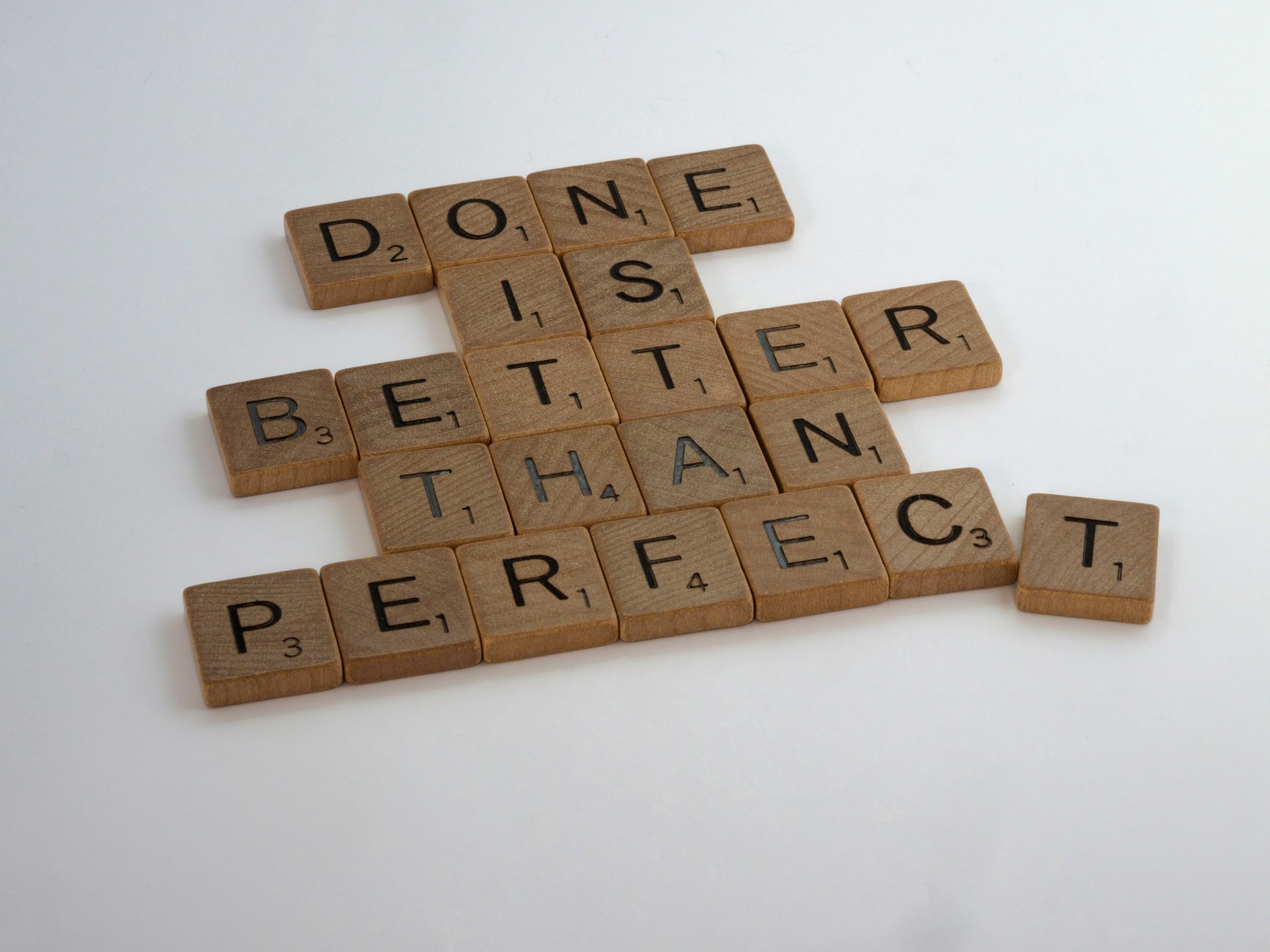Therapy 101 Blog
Every week, I write about what I am learning in this practice about:
Relationships * Careers * Fatherhood * Trauma
To receive the latest post every Saturday, subscribe to my newsletter
Hyperactive Mind: When work keeps you awake at night
Your mind races with work-related thoughts when you're trying to sleep. You replay conversations, worry about upcoming presentations, or mentally solve technical problems.
Sleep becomes elusive, and the exhaustion compounds the next day, making it harder to manage stress and emotions.
Craving Perfection - When Good Enough is Not Good Enough
You hold yourself to impossibly high standards. Your code must be flawless, your work output exceptional, your ideas brilliant. Any mistake feels catastrophic, triggering shame and self-criticism.
Perfectionism masquerades as excellence and ambition, and it’s a trap that limits your growth, damages your mental health, and paradoxically reduces your effectiveness.
Easing Out: Understanding quiet quitting
You've stopped going the extra mile. You're no longer volunteering for projects, staying late to solve problems, or thinking about work during weekends. You do your job, but nothing more.
Quiet quitting is your way of reclaiming your time and energy, yet you may feel guilty about it or worry about your job security.
Tenuous Motivation: When The Work Loses Its Meaning
Remember the early days of your career ?
Those were heady times when you loved solving problems, learning new technologies, and launching new products and features. But somewhere along the way, that spark dimmed and projects started to feel more like tasks.
The loss of motivation is not a character flaw but an important signal that something needs to change.
Void Filling: Staying at Work to Avoid Going Home
Are you unable to leave work at work, on your laptop late into the evening not because of urgent deadlines, but because it’s easier than dealing with the rest of your life?
Work can become a refuge from personal struggles, failed relationships, or an empty apartment.
Mental Health Warning Signs for Tech Professionals
There are clear signs of burnout among tech professionals.
The tech industry's culture of constant innovation, relentless deadlines, and always-on availability creates a unique breeding ground for mental health challenges that affect even the most resilient professionals.
I have created a list of the 5 most common warning signs that your job might be impacting your mental health, relationships, and career.
Power To vs. Power Over
Power to is much better than power over.
But most men don't know the difference. And that confusion is creating a painful double bind.
Our relationship to power depends on whether we're wielding it or experiencing it. For men, power can feel like both a birthright and a trap. Society tells us to be powerful, to take charge, to be in control. But the same society condemns us when we use that power in ways that feel controlling, dominating, or oppressive.
So we try to do the right thing. We rein it in. We make ourselves smaller. We go along to get along. We downplay our opinions, soften our presence, apologize for taking up space. We try to be less intimidating, less domineering, less of what we're afraid others see when they see a man with power.
We trade one problem for another—from potentially abusing power to abandoning it altogether.
The question haunts us: How can I be strong without alienating the people I care about?
The balance feels elusive, and the fear of getting it wrong keeps us playing small.
Call People Up, Not Out: The Power of Responding to Mistakes with Grace
We've all been there. You screwed up, you knew it, and you felt terrible about it.
The mistake itself is painful enough. You're already replaying it in your mind, beating yourself up, feeling the weight of disappointment and shame. You don't need anyone to tell you that you messed up—you're acutely aware.
And then someone calls you out. Having our worst moment highlighted and used against us. Being defined by our failure rather than given space to grow from it.
It's Easy to Blame Your Dad
It's easy to blame your dad.
Once men start to reflect on who they've become, it's almost impossible not to reflect on their primary role model.
The awareness hits like a freight train. You're in your thirties, forties, or fifties, and suddenly you're connecting the dots between your dad's emotional distance and your own struggles with intimacy.
Once you see the impact of the person who raised you, it's hard to unsee it.
And once you see it, it's even harder not to be angry about it. Why didn't he know better? Why didn't he do better? Why did he pass on these limiting beliefs about what it means to be a man? The cycle is repeating, and it feels like his fault.
You're No Picnic: Why Being a "Good Man" Isn't Working
Let's be honest: You're no picnic.
Neither am I. Neither is anyone.
But here's the thing—we never see it that way, do we? We are the protagonist doing our best in a world full of difficult people who just don't understand us.
And from your point of view? You're absolutely right.
And yet.
The Masks We Wear: Freedom from Being "Fine"
You've built an impressive life. From the outside, everything looks successful. You have the career, the family, the life that everyone said you should want. People see you as someone who has it all together.
But inside? You're exhausted from performing.
Every morning, you put on the mask.
The Subtraction Principle: Why Less is Often More
You're stuck in a loop. No matter what you do, it never seems to be quite enough.
Your partner says the relationship feels disconnected, so you book a nicer vacation and work harder to provide. But the disconnection remains.
Your project at work isn't quite perfect, so you stay late, pull weekends, optimize every detail. But the satisfaction doesn't come.
You're feeling alone and overwhelmed, so you scroll more, drink more, party harder—anything to escape the feeling. But the emptiness persists.
You're doing more. Adding more effort, more hours, more intensity, more stuff. And yet the problems aren't solving. If anything, they're getting worse.
The frustrating part? Everyone around you seems to validate this approach. Work harder. Try more. Add more. Maximal effort. More input equals better output. More must equal better.
This is what success looks like, isn't it?
But what if the problem isn't that you're not doing enough? What if the problem is that you're doing too much?
Men's Therapy Journey: From Hope to Healing
You've noticed things aren't working anymore.
The strategies that got you through life - pushing forward, staying busy, keeping emotions at bay - have stopped being effective. Relationships feel strained. Your partner says you're "emotionally unavailable." Your kids seem distant. Work success isn't bringing the satisfaction it once did. You're questioning yourself in ways you never have before.
Maybe you've had a significant life event - a divorce, a career setback, a health scare - that's forced you to pause.
You look around and wonder: "Is this it? Is this all there is?"
Why Men Get Lost Following the Wrong Directions
Here's something that will blow your mind:
"Crazy Train" is a disco song. 🎶
That's right, the most recognizable heavy metal anthem—Ozzy Osbourne's headbanging classic—has a distinctly disco rhythm section, according to the hosts of the One Song podcast. And if you've seen the live version of ABBA's "Mamma Mia", they reference the Crazy Train guitar riff in their own disco-heavy performance.
It reminds me that how we see the world is often not the same as the world itself.
When Work Becomes Your Escape: Why Men Hide Behind Their Careers
Here's what they don't tell you about the modern man's relationship with work:
It's not all about ambition or career advancement.
Sometimes it’s about avoiding the messy, unpredictable complexity of real life, and the exhausting vulnerability that comes with authentic relationships.
How Scrolling Dooms Men’s Relationships
While women have been gathering, men have been scrolling. Blame the pandemic or social media, but men have gotten used to the frictionless way that their phone allows them to interact with the world. And it's costing them.
Why Good Enough Is Actually Perfect
Here's what they don't tell you about perfection:
It's not actually about achieving excellence.
It's about avoiding the anxiety of being human, and the exhausting performance that comes with it.
Why Trauma Recovery Isn't a Straight Line
Society trains us to see backward movement as failure. In business, declining numbers mean you're losing. In fitness, moving less weight than last week means you're getting weaker. In school, failing to advance to the next grade means you're not smart enough.
But healing operates by different rules.
Sometimes the most profound growth happens when you consciously choose to step back and regroup instead of pushing forward for the sake of progress.
When your vulnerability is weaponized
Here's what they don't tell you about vulnerability:
It's not actually about being vulnerable.
It's about finding someone who won't turn your openness into a weapon.
No One of Us is as Smart as All of Us
Picture the most isolated professional you've ever met. Someone carrying the weight of their clients' stories, processing trauma day after day, making life-altering decisions in therapy sessions. Every challenge feels insurmountable. Every setback feels personal. Every difficult case becomes a referendum on their competence.
This is what happens when mental health professionals try to do this work in isolation.
It doesn't have to be this way.





















